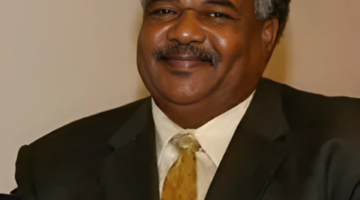 Special to South Florida Times
Special to South Florida Times
In the early years of the nation of Israel, if you caused an accidental death of someone there were six places to which you could run for sanctuary.
They were called Cities of Refuge.
This was important because the price for a life was a life.
As long as you arrived and stayed in the place of refugee and it was found that the death you caused was indeed an accident, you could stay for the rest of your life or until the high priest of that time died. The cities were strategically placed in the north, central and south.
Today, Miami is a City of Refuge but not one where fugitives from justice run. It is a refuge for writers who are censored and under threat from their governments because of their writings. It is a place for literary and freedom of speech protection.
For almost a year now, renowned Zimbabwean author Chenjerai Hove has been Miami’s first author in the local City of Refuge. As a writer-in-residence at the Florida Center for the Literary Arts at Miami Dade College, Hove has been visiting college classrooms all over the county to tell his story of literary oppression by Zimbabwean President Robert Mugabi and his escape from what he was told was sure death. He will be in Miami for another year.
Visitors to the Miami Book Fair international, which starts on Sunday and runs for week, can find Hove’s works, particularly his acclaimed book Bones about loss and war in post-colonial Zimbabwe, the southern African nation formerly known as Rhodesia.
Hove will be on a panel Saturday discussing African literature and the diaspora. He said in an interview he will share startling results from research that shows the correlation between speech and violence.
He knows all about how speech or words generally can incite powerful reactions. He had to flee his country after he published poetry that spoke about the injustices of his government toward its citizens.
“I was writing poetry that showed images of the violence that has been institutionalized in our politics as if it was normal,” he said. “As a newspaper columnist, I started asking our society how we allowed violence to be a part of the system.”
He found a building where other artists could express their feelings about the escalating violence in poetry, song, dance and art.
“This put me in an exposed light and I became an enemy of the state,” he said.
Being an enemy of the state put Hove in a group of writers who have had to hide from governments, such as Salman Rusdie, author of Satanic Verses, who also will be at the book fair. The late Ayatollah Khomeini of Iran issued a fatwa or death sentence against Rusdie in 1989 for Satanic Verses. The fatwa was lifted in 1998.
When it became apparent that Hove was not safe in Zimbabwe, the International Parliament of Writers, founded by prominent writers such as Rushdie and Russell Banks, sent him an open plane ticket.
With death threats mounting and bribes being offered by the government being rejected by Hove, the situation was dire. Hove received inside intelligence that he was going to “disappear” the coming Thursday.
So, in 2001, on the Tuesday before his expected kidnapping, Hove fled to Paris. He has not returned to Zimbabwe, not even for his mother’s death in February, nor does he plan to any time soon, he said. His wife is still there, as well as two of his five children.
The International Parliament of Writers dissolved, spilt and merged again to form the International Cities of Refuge Network (ICORN).
To date, 10 writers, including Hove, are in the U.S. Cities of Refuge program, from China, Colombia, El Salvador, Georgia, Iran, Sierra Leone and Swaziland. Additional writers from Cuba, China and the Congo have also been vetted and are awaiting placement.
Authors in the program are provided a furnished home, a living stipend, travel funds, health insurance and employment assistance, among other benefits. The John S. and James L. Knight Foundation provided a grant to cover costs.
Hove said he likes Miami because, in some of the places he has lived, including Oregon and Rhode Island, the United Kingdom and Norway, he does not meet people who have similar stories. But Miami with its diverse population of exiles is comforting.
Still, Hove said, Miami picked him.
Alina Interian, executive director of the Florida Center for the Literary Arts at Miami Dade College, said Miami indeed picked Hove.
“We reviewed a number of applications and his background was of interest to us,” said Interian, who was instrumental in setting up an advisory group to select candidates and writing the grant to fund Hove’s stay, once he was selected.
“He writes plays and we have a theatre group and he had put together the Zimbabwe Book Fair and we also put together the Miami Book Fair, so there were many affinity points, as well as we were moved by his story,” Interian said.
Hove has been enriching the learning experience of Miamians and others by offering new points a views, giving information and sharing his beautiful works of poetry, she said.
So far Hove has not written any plays nor has he helped with the book fair. But she said she hasn’t asked.
“He is working on his Miami memoirs,” Interian said. “He came here to write and to write in freedom and I very much respect that,” she said.
Carolyn Guniss may be reached at GunissCarolyn@msn.com.
Photo: Chenjerai Hove











No Comment